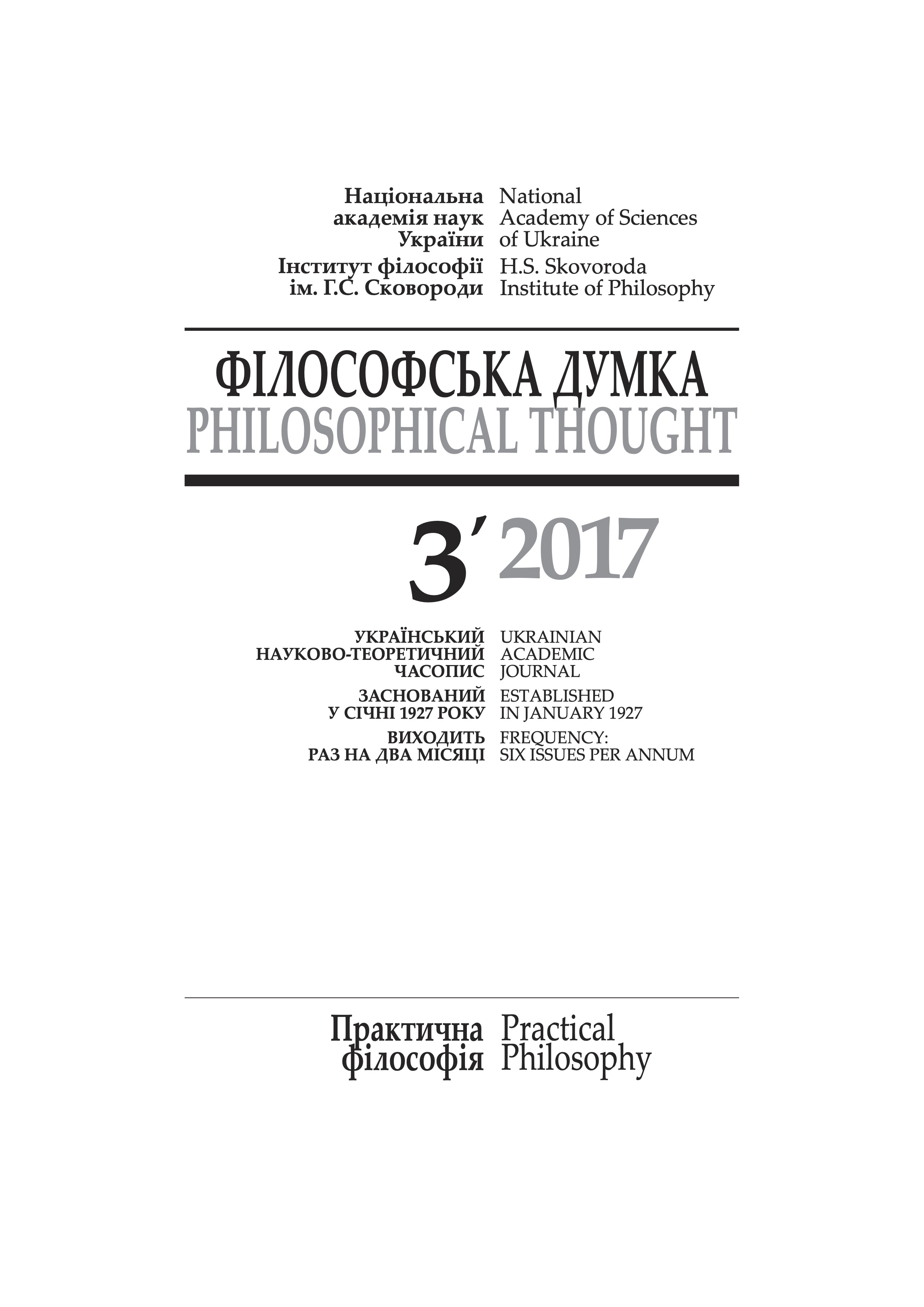Can physicalism stand against the Descartes-Hoff’s lonely ghost argument (and how)?
Keywords:
mental, physical, zombie, ghost, fundamental, supervenient, constitution, phenomenal propertyAbstract
The paper discusses the lonely ghost argument against physicalism, which was advanced by Philip Goff as a reinforced version of Descartes’ famous argument for the distinctness of mind (mental subject, or self) and body. The purported reinforcement consists in making the argument invulnerable to the typical objection that appeals to multiple realisability. Besides, the claim was made by Goff that the lonely ghost argument has several advantages over the far more influential zombie argument. Two physicalist attempts to defuse the argument, by Esa Diaz-Leon and Greg Janzen, are discussed and found unsuccessful. Some alternative ways of possible physicalist defences, which are based on questioning Goff’s success to deal with multiple realisability objection, are proposed and investigated. It is argued that there is considerable difficulty in deflecting the new objections without use of additional arguments which, if sound, would be sufficient to refute physicalism on their own and so make the lonely ghost argument redundant. The conclusion is made that physicalists have considerable resources to deal with the lonely ghost argument, and it is left open whether the lonely ghost argument can overpower them.
References
Blose, B.L. (1981). Physicalism and Disembodied Minds. In: Philosophy and Phenomenological Research, vol. 42, p. 59–74. https://doi.org/10.2307/2107543.
Bogachov, A., Vahtel, A., Verloka, V. et al. (2015). Translation as (mis)understanding. Ter mi no logical discussion. [In Ukrainian]. In: Philosophical Thought, no. 5, p. 68–93. [= Богачов 2015]
Chalmers, D. (1996). The Conscious Mind. New York: Oxford University Press.
Chalmers, D. (2015). Argument 1: The logical possibility of zombies. [In Ukrainian]. In: Philosophical Thought, no. 5, p. 60–67. [= Чалмерс 2015]
Descartes, R. (2014). Meditations on First Philosophy / Metaphysical Meditations. [In Ukrainian, Latin, and French]. In: Khoma, O. (ed.), Descartes’ «Meditations» in the Mirror of Modern Interpretations (p. 115–292). K.: Duh i litera. [= Декарт 2014]
Diaz-Leon, E. (2012). Are ghosts scarier than zombies? In: Consciousness and Cognition, vol. 21, p. 747–748. https://doi.org/10.1016/j.concog.2011.05.014.
Goff, P. (2010). Ghosts and Sparse Properties: Why Physicalists Have More to Fear from Ghosts than Zombies. In: Philosophy and Phenomenological Research, vol. 81, p. 119–39. https://doi.org/10.1111/j.1933-1592.2010.00352.x.
Goff, P. (2011). A Posteriori Physicalists Get Our Phenomenal Concepts Wrong. In: Australasian Journal of Philosophy, vol. 89 (2), p. 191–209. https://doi.org/10.1080/00048401003649617
Goff, P. (2012a). A priori physicalism, lonely ghosts and Cartesian doubt. In: Consciousness and Cognition, vol. 21, p. 742–746. https://doi.org/10.1016/j.concog.2011.02.007
Goff, P. (2012b). Ghosts are still scarier than zombies — Reply to Diaz-Leon's reply to 'A priori physicalism, lonely ghosts and Cartesian doubt'. In: Consciousness and Cognition, vol. 21, p. 749–750.
https://doi.org/10.1016/j.concog.2011.07.011
Goff, P. (2014). The Cartesian Argument against Physicalism. In: Sprevak, M., Kallestrup, J. (eds.). New Waves in Philosophy of Mind (p. 3–20). New York: Palgrave Macmillan.
https://doi.org/10.1057/9781137286734_1
Goff, P. (2015). Real acquaintance and physicalism. In: Coates, P., Coleman, S. (eds.). Pheno menal Qualities: Sense, Perception and Consciousness (p. 121–143). Oxford, New York: Ox ford University Press.
https://doi.org/10.1093/acprof:oso/9780198712718.003.0005
Hart, W.D. (1988). The Engines of the Soul. Cambridge: Cambridge University Press.
Janzen, G. (2012). Physicalists Have Nothing to Fear from Ghosts. In: International Journal of Philosophical Studies, vol. 20 (1), p. 91–104. https://doi.org/10.1080/09672559.2011.629368
Kirk, R. (1974). Sentience and Behaviour. In: Mind, vol. 83 (329), p. 43–60. https://doi.org/10.1093/mind/LXXXIII.329.43
Kripke, S. (1972). Naming and Necessity. In: Davidson, D., Harman, G. (eds.). Semantics of Natural Language (p. 253–355). Dordrecht: Reidel. https://doi.org/10.1007/978-94-010-2557-7_9
Lewis, D. (1986). On the Plurality of Worlds. Oxford: Basil Blackwell.
Nida-Rümelin, M. (2007). Grasping Phenomenal Proprties. In: Alter, T., Walter, S. (eds.). Phenomenal Concepts and Phenomenal Knowledge (p. 307–338). Oxford, New York: Oxford University Press. https://doi.org/10.1093/acprof:oso/9780195171655.003.0013.
Swinburne, R. (1984). Personal Identity: The Dualist Theory. In: Shoemaker S., Swinburne R. (Eds.). Personal Identity (p. 1–66). Oxford: Blackwell.
Taliaferro, C. (1997). Possibilities in Philosophy of Mind. In: Philosophy and Phenomenological Research, vol. 57, p. 127–37. https://doi.org/10.2307/2953781.
Downloads
-
PDF (Українська)
Downloads: 214
Published
How to Cite
Issue
Section
License
Authors who publish with this journal agree to the following terms:
- Authors retain copyright and grant the journal right of first publication.
- Authors are able to enter into separate, additional contractual arrangements for the non-exclusive distribution of the journal's published version of the work (e.g., post it to an institutional repository or publish it in a book), with an acknowledgement of its initial publication in this journal.
- Authors are permitted and encouraged to post their work online (e.g., in institutional repositories or on their website) prior to and during the submission process, as it can lead to productive exchanges, as well as earlier and greater citation of published work (See The Effect of Open Access).


